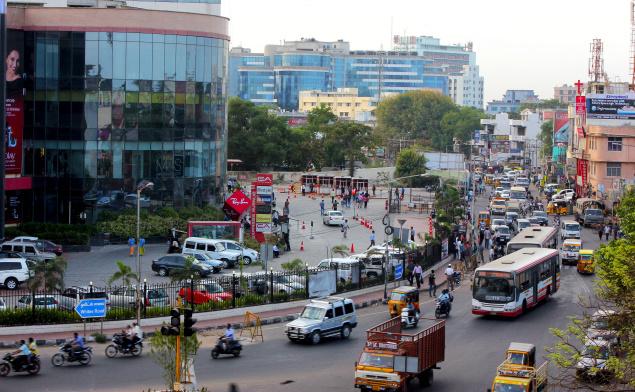
June 25 was the 40th anniversary of the infamous Emergency — the then Indira Gandhi Government’s audacious attempt to stifle democracy. Very few from the South opposed it, and yet, much of the momentum for the resistance came from a feisty press baron of Madras — Ramnath Goenka, the owner of the Indian Express Group of newspapers.
Having come to Madras in the 1920s, with reportedly nothing more than “a lota and a nine-cubit dhoti,” to quote his biographer BG Verghese, Goenka was an all-India figure by the 1940s. Though his papers would later be published from many cities, Madras was always his headquarters, his residence being Hicks Bungalow on Patullos Road. His businesses operated from neighbouring Express Estates, a 23-acre property that he bought from the Madras Club for Rs. 14.85 lakhs in 1946. The quiet thoroughfare connecting the property to Mount Road is still Club House Road.
It is said that when Emergency was declared, Goenka was in the ICU of a Calcutta hospital, recovering from a heart attack. Raring to get into the thick of battle, he disconnected the tubes and “stole out to board a taxi but was detected in time and brought back”. The Indian Express came out on June 25, 1975, with a blank first editorial while the Financial Express published Tagore’s poem, Where the Mind is Without Fear.
A man who loved the good fight, Goenka challenged the Emergency in many ways. He helped in publishing Prajaniti, and its English counterpart, Everyman, vehicles that propagated the thoughts of Jayaprakash Narayan, the doughty opponent to Mrs Gandhi’s regime. The vast Express Estates was also where several leaders of the Opposition, most of them on the run from the police, could find safe haven. One among these was the firebrand George Fernandes. He had come first to the Spur Tank Road residence of tuberculosis specialist and Swatantra Party leader Dr Mathuram Santosham. On coming to know that the police were closing in, he was transferred to Express Estates.
The powers-that-be did their best to stifle Goenka and his publications. There were moves to acquire the business by media houses in sympathy with the ruling party, and when this was resisted, there were, to quote BG Verghese, “raids, court cases, a long series of pre-censorship orders, stoppages of bank advances and advertisements”— in short, all the standard operating procedures of a draconian Government. Goenka, however, stood his ground, despite being in poor health throughout. The stress that he and his family withstood then later resulted in the early demise of his son Bhagwan Das.
The battle against the Emergency gained ground and culminated in the General Elections in March 1977. That saw the landslide victory of the Janata Party and the first national debacle for the Congress. Goenka went on to fight other battles. The Express Estates is now a mall. But we do need a marker to commemorate the Marwari Media Man from Madras who fought the Emergency from there.
source: http://www.thehindu.com / The Hindu / Home> Features> MetroPlus / by Sriram V. / June 26th, 2015